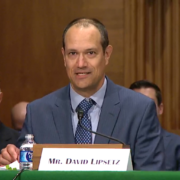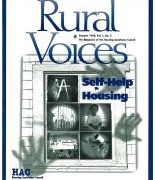HAC’s CEO Testifies to Senate Banking Subcommittee on Rural Housing Reforms
HAC was honored to be invited to testify on May 2, 2023 before the Housing, Transportation, and Community Development Subcommittee of the U.S. Senate Committee on Banking, Housing, and Urban Affairs to discuss commonsense, bipartisan reforms to the U.S. Department of Agriculture’s Rural Housing Service (RHS) programs. HAC’s President & CEO, David Lipsetz, was one of five witnesses on the hearing panel.
The hearing was held to discuss the bipartisan Rural Housing Service Reform Act of 2023, which has been introduced by Subcommittee Chairwoman Tina Smith (D-MN) and Senator Mike Rounds (R-SD). The RHS Reform Act includes a slate of provisions to improve the multifamily, single-family, and capacity building programs at RHS. Senators Smith and Rounds engaged deeply with stakeholders on the creation of the bill, including offering a call for policy recommendations in the summer of 2022. HAC’s response to that comment opportunity can be seen here. We were thrilled to see many of our recommendations included in the bill, and applaud Senators Smith and Rounds on their thoughtful engagement with stakeholders and their commitment to improving the RHS programs.


